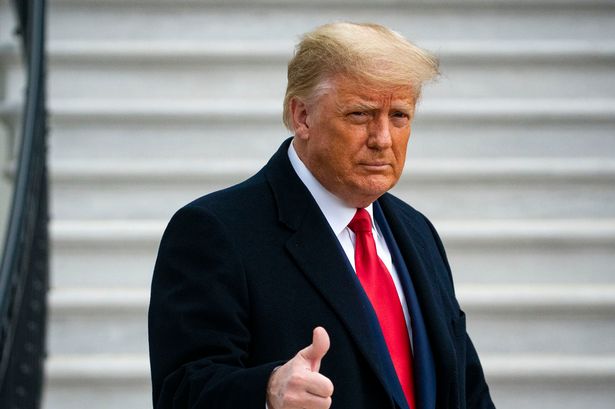Donald Trump’s potential intervention in the TikTok ban represents a pivotal moment in the ongoing saga surrounding the popular social media platform’s presence in the United States. The former President, who boasts a substantial following of 14.7 million on the app himself, has signaled a willingness to reverse the ban, a move that could reshape the landscape of social media and influence the future of online content creation and consumption. The ban, initiated under the Trump administration, stemmed from national security concerns related to TikTok’s Chinese ownership and the potential for data harvesting and influence by the Chinese Communist Party. This concern, shared by various government agencies and cybersecurity experts, fueled a heated debate about the balance between national security and freedom of expression, with proponents of the ban arguing that the risks posed by TikTok outweighed its benefits.
The potential reversal of the TikTok ban raises a complex interplay of political, economic, and social considerations. From a political standpoint, Trump’s involvement suggests a potential shift in the Republican party’s stance on the issue, particularly considering his significant influence within the party and his personal investment in the platform as a user. Economically, the ban’s reversal could have substantial implications for the digital advertising market, content creation industry, and the broader U.S. tech sector. TikTok’s vast user base represents a significant market for advertisers, and its platform has become a breeding ground for new forms of creative expression and entrepreneurship. Socially, the platform’s continued presence in the U.S. market would maintain a popular avenue for communication, entertainment, and information dissemination, particularly among younger demographics.
The national security concerns that initially prompted the ban remain a significant point of contention. Critics argue that allowing TikTok to operate freely in the U.S. could expose user data to the Chinese government, potentially enabling surveillance and manipulation. They point to China’s national security laws, which compel companies to cooperate with intelligence agencies, as evidence of the potential risks. Furthermore, concerns exist about the potential for the Chinese government to use TikTok to spread propaganda or censor content unfavorable to the regime. These anxieties highlight the broader geopolitical tensions between the U.S. and China, with TikTok becoming a symbol of the technological and ideological battleground between the two superpowers.
Conversely, proponents of reversing the ban argue that the national security risks can be mitigated through stringent data security measures and oversight. They suggest that a comprehensive agreement could be reached with TikTok’s parent company, ByteDance, to ensure user data protection and prevent undue influence by the Chinese government. Such measures could include independent audits of TikTok’s algorithms, restrictions on data sharing with Chinese entities, and transparency regarding content moderation practices. Moreover, some argue that banning TikTok sets a dangerous precedent for restricting free speech and access to information, potentially paving the way for censorship of other platforms in the future.
The debate surrounding the TikTok ban also raises crucial questions about the broader regulatory landscape for social media platforms. The case of TikTok highlights the challenges of regulating global tech companies operating across national borders and the need for international cooperation in addressing data security and privacy concerns. It also underscores the importance of finding a balance between protecting national security and preserving the principles of free speech and open access to information. The outcome of the TikTok situation could serve as a bellwether for future regulatory efforts aimed at addressing the complex issues presented by the increasing influence of social media in society.
Ultimately, the decision regarding TikTok’s future in the U.S. will have far-reaching consequences. It will impact not only the millions of users who rely on the platform for communication and entertainment but also the broader social media landscape and the ongoing geopolitical rivalry between the U.S. and China. Whether the ban is reversed, maintained, or replaced with a new regulatory framework, the case of TikTok serves as a critical juncture in the evolution of the internet and the ongoing struggle to balance national security, individual freedoms, and the power of technology. The final determination will be closely watched by governments, businesses, and individuals around the world, as it sets a precedent for how nations grapple with the challenges posed by global technology platforms in the 21st century.














